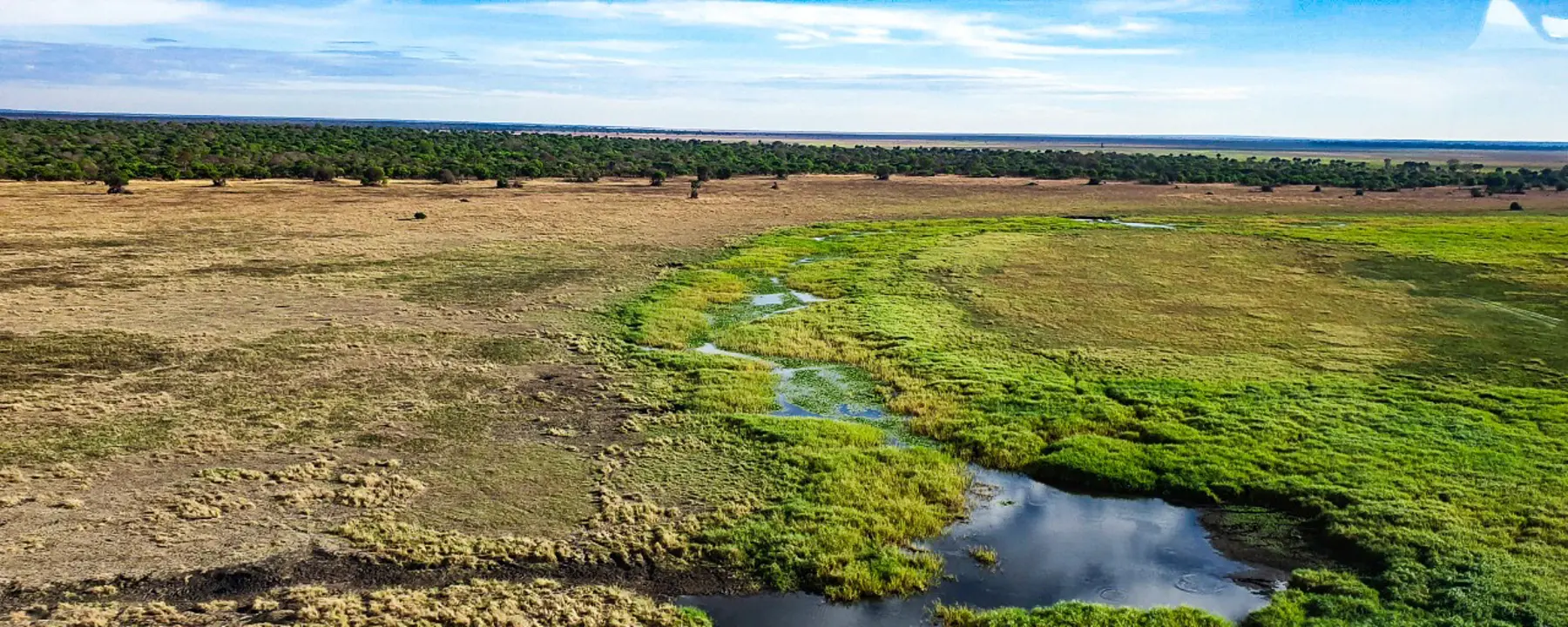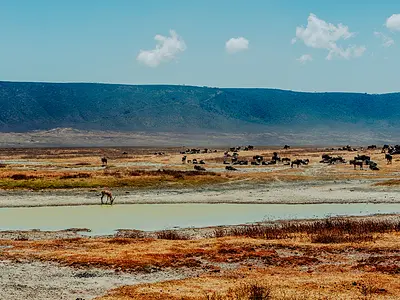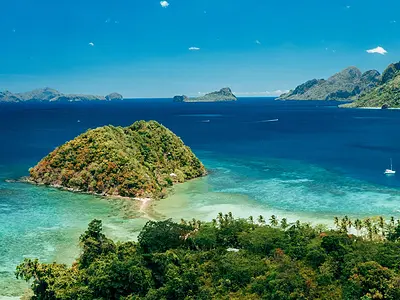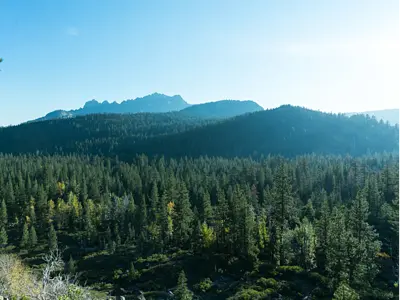Developing innovative solutions under a holistic, nature-based approach that addresses multiple crises
Nature can play a key role in helping us to address and solve complex societal and environmental challenges ranging from biodiversity loss to climate change. Nature-based solutions (NBS) conserve, manage, and restore ecosystems while creating co-benefits, such as promoting inclusive and sustainable economic growth and recreational opportunities, enhancing communities, and increasing resilience to environmental and climatic hazards. Nature-based solutions benefit both society and the natural environment upon which we all depend.
Our Approach to Nature-Based Solutions
By holistically assessing the suitability, feasibility, and effort of implementing nature-based solutions, we support partners in creating lasting societal and environmental benefits while reducing unintended consequences. RTI engages with local communities and Indigenous peoples to implement nature-based solutions that protect, restore, and manage ecosystems and their natural functions. Implementing NBS supports the sustainable use of natural resources, ecosystems, and aquatic systems and reduces community vulnerabilities from current and potential future risks related to environmental hazards arising from human and climatic drivers.
These collaborations facilitate nature-based actions to address the gravest challenges of our time, including flooding and drought, biodiversity loss, and food security, many of which are driven by climate change. From regional, state, and watershed level planning to site-specific application and implementation, we tailor our tools and approaches to develop plans for implementing NBS and quantifying the environmental, ecological, and societal benefits.
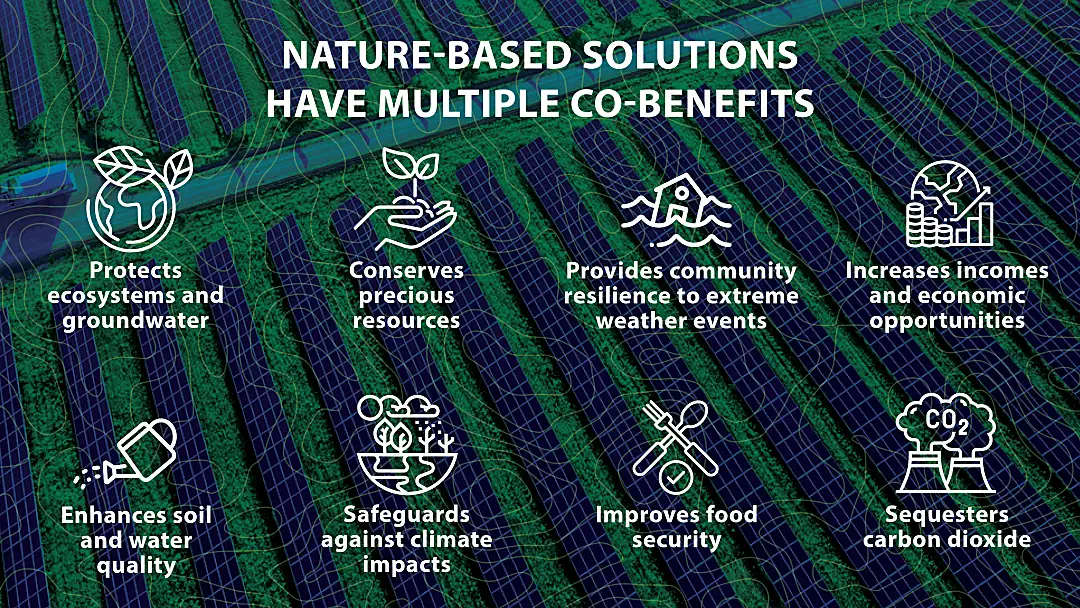
What we do to support nature-based solutions
- Develop analytic frameworks and models that evaluate and quantify the benefits of NBS approaches to help inform policymakers;
- Employ advanced tools like HydroBID and WaterFALL to accurately model hydrologic and water quality conditions in domestic and international watersheds to develop watershed management plans that can characterize NBS and the impact they have on water-related objectives;
- Estimate NBS potential through geographic suitability assessments that address restoration, preservation, prevention, management, and green infrastructure;
- Implement NBS projects that conserve, manage, and restore ecosystems, protect biodiversity, support economic growth, and help communities adapt to and mitigate climate change; and
- Create tools that put quantitative analyses in the hands of decision makers and the public, enabling their own evaluation of NBS projects with data that can be used in funding applications.

Replanting Mangroves to Sequester Carbon and Create New Economic Opportunities in the Philippines
Through the USAID Sustainable Interventions for Biodiversity, Oceans, and Landscapes (SIBOL) activity, we are working with local communities and agencies to replant mangrove forests along the Siargao Island Protected Landscape and Seascape. Healthy mangrove forests sequester up to four times more carbon than rainforests per hectare and slow coastal erosion by buffering the impact of storm waves. SIBOL also works with the people who live along the country’s shorelines to strengthen fisheries management, protect biodiversity, and create sustainable novel approaches to ecotourism, all of which can generate additional income.
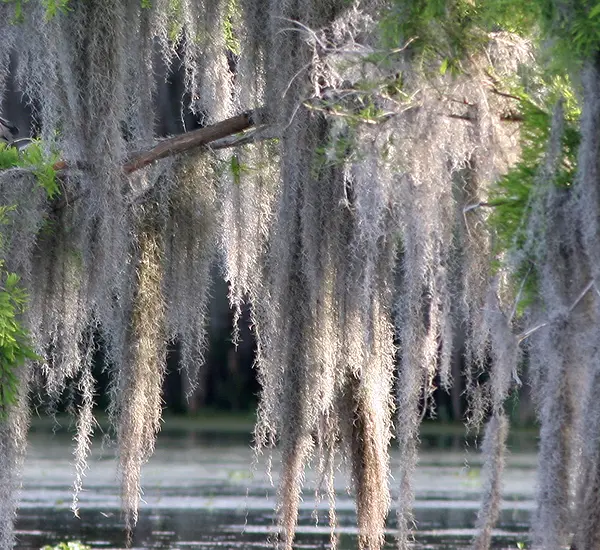
Flood Resilience and Watershed Management in Louisiana
RTI, in collaboration with The Nature Conservancy, is developing the NBS Explorer for the State of Louisiana to address an urgent and growing need to facilitate decision making about investments in NBS at the watershed scale. The NBS Explorer uses RTI’s Watershed Flow and Allocation (WaterFALL®) modeling to evaluate both primary and co-benefits of NBS implementation. Primary benefits include greater flood resilience. By reducing runoff of excess nitrogen, phosphorus, and sediments, co-benefits include improved water quality and better aquatic habitat for key recreational fish species.

Modeling the Impact of Urban Tree Cover on Health in Extreme Heat
RTI researchers led a collaborative scientific study to assess the life-saving impact of urban tree cover by reducing temperatures during periods of extreme heat. By applying their model to Baltimore, MD, researchers found that increasing tree cover by just 10 percent could save an additional 83 to 247 lives each year. Persons over age 65, who are especially vulnerable to heat, would account for over half of the reduced mortality. This quantifiable data can help decision-makers elsewhere develop effective policies for adapting to climate change.
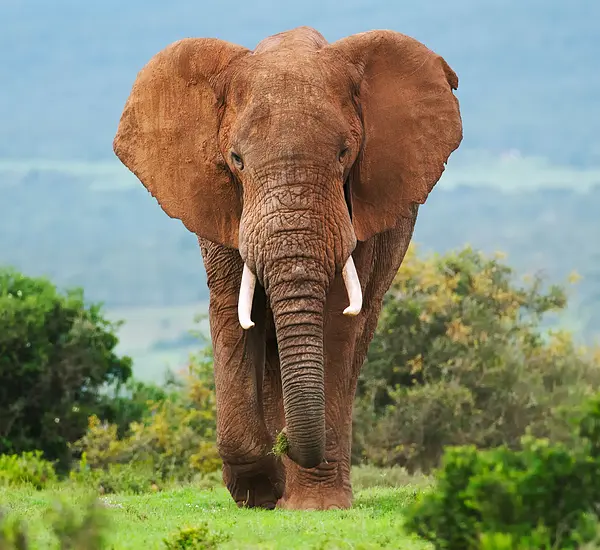
Employing Bees to Help Smallholder Farmers Deter Elephants in Tanzania
Elephants have a natural aversion to bees. The USAID Tuhifadhi Maliasili (“Preserve Natural Resources”) activity, implemented by RTI, takes the ingenious approach of helping farming families in Tanzania line their agricultural fields with beehives. This serves the dual purpose of keeping elephants out of the crops while generating a new income stream for smallholder farmers–honey. The enhanced pollination also benefits biodiversity on and off the farms. This activity offers an excellent example of employing a nature-based solution to create economic incentives for reducing human-wildlife conflict and protecting biodiversity.
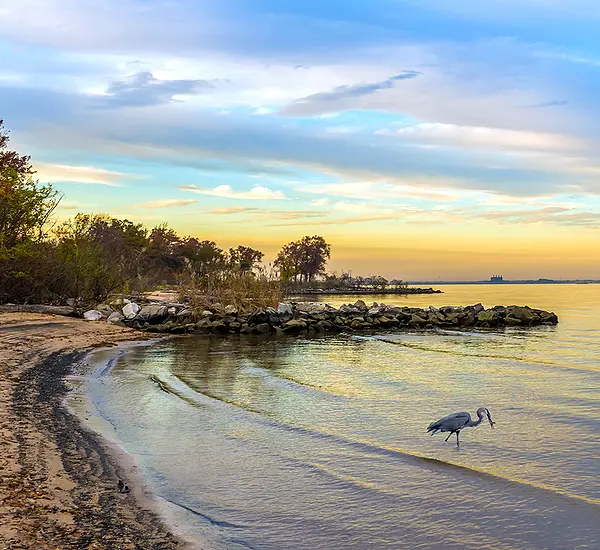
Supporting NBS-Friendly Policies in the Chesapeake Bay Watershed
In partnership with the U.S. Environmental Protection Agency (EPA) and other stakeholders, we developed an analytic framework to help policymakers evaluate and quantify the benefits associated with the goal of reducing pollution loads in water. Focusing on the Chesapeake Bay watershed, the framework provides useful insights into the multiple ecosystem benefits associated with meeting water pollution control targets, including several ancillary societal benefits, such as carbon sequestration, flood protection, and outdoor recreation.
Related Projects
USAID Tuhifadhi Maliasili Activity: Biodiversity Conservation in Tanzania
Read More about USAID Tuhifadhi Maliasili Activity: Biodiversity Conservation in Tanzania
